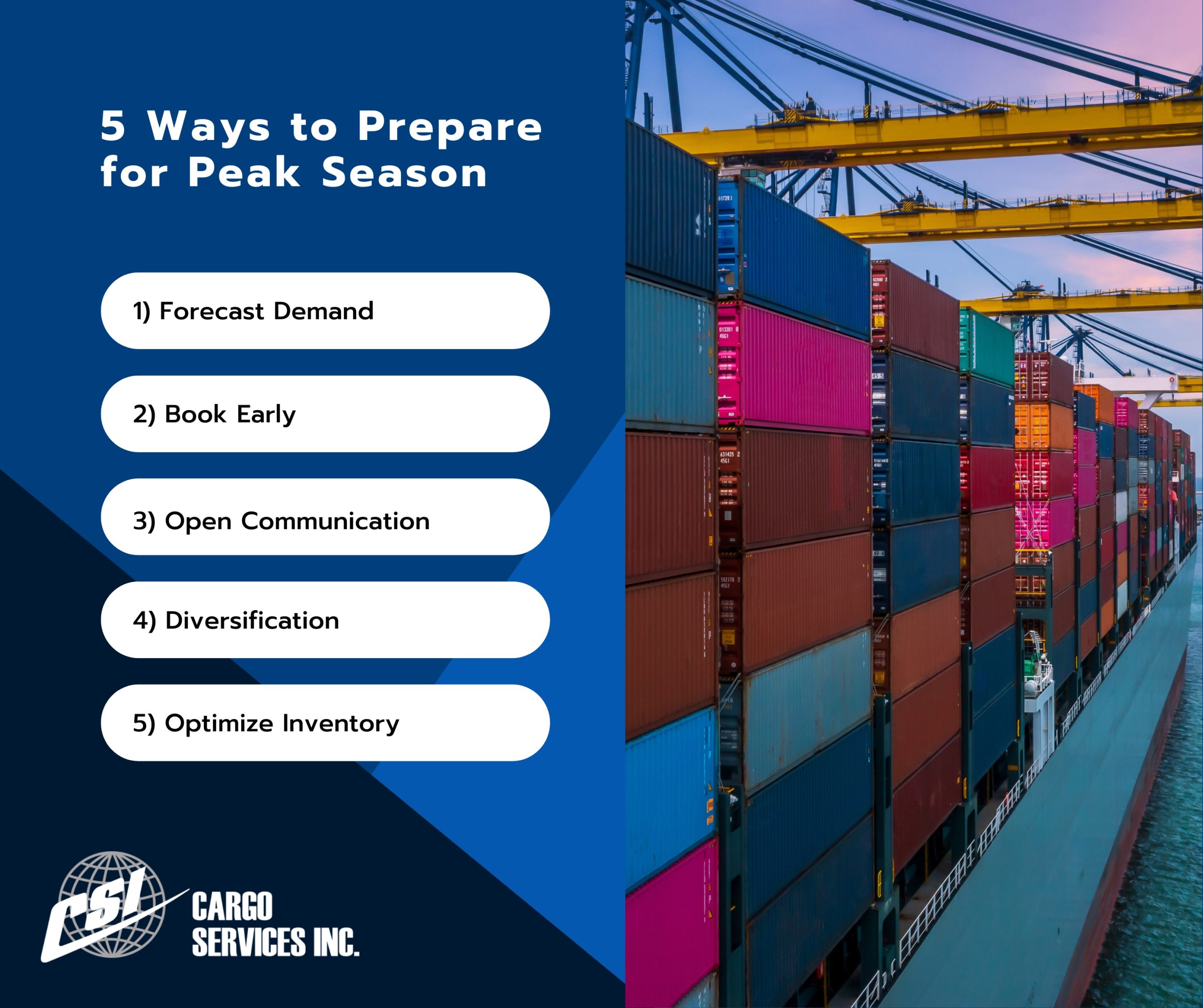 Cargo Services believes in keeping our customers informed and empowered, especially during times of industry challenges. We strive to provide clarity regarding the latest developments affecting freight forwarding services.
Cargo Services believes in keeping our customers informed and empowered, especially during times of industry challenges. We strive to provide clarity regarding the latest developments affecting freight forwarding services.
Red Sea Disruptions: Recent disruptions in the Red Sea have caused concerns within the shipping industry. Heightened tensions have led to delays and rerouting of vessels.. We are monitoring the situation. After heavy surcharges through January and February, rates are finally on the decline depending on the carrier and other factors.
New Demurrage-Detention Rules: Understanding the complexities of demurrage and detention charges is essential for efficient supply chain management. Recent changes in demurrage-detention rules have implications for both shippers and consignees. These adjustments aim to streamline processes and promote fair practices in container utilization. https://www.supplychaindive.com/news/federal-maritime-commission-final-ruling-detention-demurrage-billing/708376/
Labor Issues on the East Coast/Gulf Coast: Labor disputes and shortages on the East and Gulf Coasts of the United States have historically impacted port operations and in turn, supply chain efficiency. Keep your eye on the US East Coast/Gulf Coast labor negotiations with their contract ending September 30th. The union is threatening to strike if no contract agreement is reached by that deadline. Frequent Far East to USEC importers should consider balancing their Asian supply chain to include US and Canada West Coast ports of entry. https://www.freightwaves.com/news/threat-of-strike-looms-large-over-east-gulf-coast-ports
Preparing for Peak Season: It is never too early to plan for a potential Peak Season. Some actionable steps to assist smoother operations for your supply chain are:
- Forecast Demand: Anticipate higher shipment volumes and collaborate with your freight forwarder to develop a comprehensive plan for managing peak season demands. Order early but avoid panic buying.
- Book Early: Ordering early, means preparing & booking space with your freight forwarder early as well.
- Open Communication: Maintain open lines of communication with your freight forwarder to stay updated on industry developments and any potential disruptions.
- Diversification: Explore alternative transportation routes and modes to mitigate risks associated with specific regions or transport lanes affected by disruptions.
- Optimize Inventory: Consider stocking up or other inventory strategies to meet customer demand during peak season while minimizing excess stock.
We value your partnership and with that, your trust in us to navigate any supply chain challenges you may face. Should you have any questions or concerns, please do not hesitate to reach out to our team.
